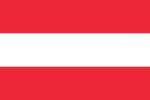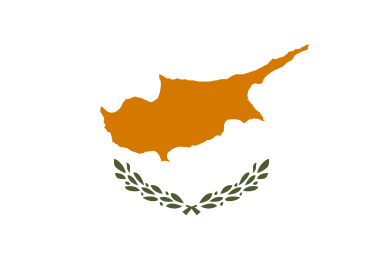About ANEC
Our Members
- Details
ANEC represents consumers from the EU Member States and 3 EFTA countries (Iceland, Norway and Switzerland) as well as the Republic of North Macedonia, Serbia, Türkiye and the United Kingdom.
Members of the ANEC Steering Committee
The ANEC Steering Committee 2023-2027 is composed of:

Czech RepublicLibor Dupal |
FinlandTo be appointed |
ItalyGiovanni Santovito
|
|
LithuaniaRusné Juozapaitiené Vice President |
MaltaGrace Attard |
NorwayOlav Kasland Treasurer |
|
Republic of North MacedoniaMarijana Lonchar Velkova
|
SerbiaZoran Nikolić |
Members of the General Assembly
NOTE: each member of the ANEC General Assembly is nominated to represent the interests of all national consumer organisations in his or her home country. Hence the organisations listed provide only a contact address for the GA member.
Members of the General Assembly 2023-2027:
|
AustriaDr. Herbert Weißensteiner Fachstelle Normungsbeteiligung Stubenring 8-10, 1010 Wien |
BelgiumBilly-Ray Muraille |
BulgariaProf. Elka Vasileva |
|
CroatiaTo be appointed
|
CyprusLoucas Aristodemou |
CzechiaLibor Dupal |
|
DenmarkHelen Amundsen
|
EstoniaLinda Läänesaar |
FinlandTo be appointed |
|
FranceAnne Lucet-Dallongeville |
GermanyDr. Werner Daum |
GreeceCaralampo Focas |
|
HungaryTo be appointed |
IcelandSigurður Másson |
IrelandDermott Jewell Consumers' Association of Ireland (Regd. No. 29112) |
|
ItalyGiovanni Santovito |
LatviaSilvia Viksnina |
LithuaniaRusnė Juozapaitienė |
|
LuxembourgTo be appointed
|
MaltaGrace Attard |
NetherlandsLauri Ten Grotenhuis
|
|
NorwayOlav Kasland
|
PolandElzbieta Szadzinska
|
PortugalVitor Machado |
|
Republic of North MacedoniaMarijana Lonchar Velkova |
RomaniaSorin Mierlea |
SerbiaZoran NIKOLIĆ |
|
SlovakiaTo be appointed |
SloveniaBoštjan Okorn |
SpainDavid Sánchez Carpio |
|
SwedenSinan Akdag Sweden Consumers' Association Kabyssgatan 4D |
SwitzerlandTo be appointed |
TürkiyeMuammer Berge |
|
UKJulie Hunter |
|
Leaders of the ANEC Working Groups and Project Teams
|
Accessibility WG Chair: Alejandro Moledo Vice-Chair: Guido Hoff |
Child Safety WG Chair Emerita: Anne Smith Co-Chair: Helen Amundsen Co-Chair: Mike Hayes |
Domestic Appliances WG Chair: Karin Both Vice-Chair: Javier García Fernández
|
|
Digital Society WG Chair: Rusné Juozapaitiené Vice-Chair: John Ketchell |
Services WG Chair: Keith Lewis Vice-Chair: Billy-Ray Muraille Vice-Chair: Kerstin Jonsson |
Sustainability WG Chair: Boštjan Okorn Vice-Chair: Nerkis Kural Vice-Chair: Ricky Spencer |
|
Traffic & Mobility WG Chair: Ronald Vroman Vice-Chair: Herdis Storgaard |
Chemicals PT (reports to Sustainability WG) Co-Chair: Tania Vandenberghe (ANEC Secretariat) Co-Chair: Michela Vuerich (ANEC Secretariat) |
|
How we work
- Details
ANEC General Assembly
ANEC is governed by a General Assembly (ANEC/GA) which is open to membership of the countries of the European Union and EFTA, as well as the United Kingdom and candidate accession countries to the EU. The individual national member is nominated through a collective decision of the national consumer organisations in each country and acts as the interlocutor between them and ANEC. Each General Assembly serves a four-year term and ordinarily meets annually. The General Assembly meeting is presided over by the ANEC President, elected by the General Assembly from among its membership for a two-year term. The ANEC Secretary-General acts as its secretary.
ANEC Steering Committee
The strategic decisions of the General Assembly are implemented by a board known as the ANEC Steering Committee (ANEC/SC). Chaired by the ANEC President, the Steering Committee comprises up to nine members elected by the General Assembly from among its membership for a two-year term. The Steering Committee members elect the ANEC Vice-President and ANEC Treasurer, again for two-year terms. The Steering Committee meets up to four times each year and also works by correspondence.
ANEC Working Groups
Each field of priority in which ANEC operates, determined by the ANEC General Assembly and Steering Committee, has a Working Group (ANEC/WG) as its focus. Each WG has a Chair (appointed as an observer to the General Assembly) and Secretary (a Manager from the ANEC Secretariat). Its members are voluntary experts drawn from across the countries of the ANEC membership. Among other responsibilities, each WG is responsible for defining the priorities in its sector and for determining the positions of the ANEC representatives in the ESOs and similar organisations.
In 2020, the ANEC budget allows ANEC to operate in the following main areas of priority: Child Safety, Accessibility, Domestic Appliances (DOMAP), Sustainability (including chemicals), Digital Society, Services, Traffic & Mobility.
With BEUC, ANEC is active in a separately-funded project to represent the consumer interest in Implementing Measures for Ecodesign.
We also have an agreement with ECOS in representation of the consumer and environmental interest in ecodesign standardisation.
ANEC is a member of PROMPT, a project that aims to reduce the premature obsolescence of products.
The ANEC Secretariat acts as the hub of the association. Headed by the ANEC Secretary-General, it manages the activities of its actors at European (and sometimes international) level; supports the governance and technical bodies of the association and the members of those bodies, and leads on the representation of ANEC within the European institutions.
The Standardisation Regulation
- Details
On 25 October 2012 the European Parliament and Council of Ministers adopted a new Regulation on European Standardisation (Regulation (EU) No 1025/2012).
ANEC welcomes the commitment of the Regulation to support the continued financing of the representation of the public interest - including consumer protection - in the European Standardisation System, and to set political expectations for the strengthening of the voice of societal interests in the standards development process.
Why is it important?
Although European standards are the foundation on which the Single Market for products has been built over the past quarter-of-a-century, CEN, CENELEC and ETSI are private associations in whose work the societal interest may not be naturally represented. Through the Standardisation Regulation, the European Institutions have recognised the value that societal stakeholders can bring in the development of European standards, especially noting the will of the first and second Single Market Acts to extend the formal use of European standards to the field of services, and to broader European public policies.
Despite the national delegation principle in CEN and CENELEC bringing a strength to the European Standardisation System, consumer representation in standardisation is weak or fragmented in many countries, as confirmed by the Access to Standardisation Study done for the European Commission in 2008/2009. ETSI does not provide a special category for consumer representation and, although ANEC is a full member, it has only a single vote in the ETSI process (compared with the 45 votes for the largest multinational companies).
In its Annex III, the Standardisation Regulation recognises categories of European association that represent stakeholders often absent from the process at national level, or who have special economic and political value. Consumers, as represented by ANEC, are one category. This recognition enables the continued public funding of these associations by the European Union, and their participation in European standardisation directly at the European level.
What are its implications?
The Standardisation Regulation also sets an expectation that the participation of the experts of these associations in the standards development process be made “effective”. This follows some orientations of the European Parliament’s Resolution of 21 October 2010 on the future of European standardisation which we helped to shape.
Without effective consumer representation in the writing of standards, products will not be as safe, as interoperable, as accessible or as sustainable as they could be. Of course, it is not the interests of business to ignore the needs of consumers if it wants to sell its products and services, but our experience is that business tends to focus on the needs of the mainstream or “average” consumer - where costs are often lowest and profits highest - to the detriment of vulnerable consumers: those who are young, old or disabled. When standards are used for legislation or other public policy objectives, it is essential they take account of the needs of all consumers.
The inclusiveness of the European Standardisation System, required by the Standardisation Regulation is unique, and goes beyond the provisions of the WTO TBT Code of Good Practice.
Our mission
- Details
ANEC is an international non-profit association established under Belgian law with a central secretariat in Brussels, Belgium. We are recognised by the European Commission and EFTA Secretariat, and are a full member of the Commission’s Consumer Policy Advisory Group (CPAG) and an observer in the Committee on Standards (CoS). We are also a member of several EC consultative committees and numerous expert groups, including the Commission’s High-Level Forum on Standardisation (HLFS). ANEC has signed the European Transparency Register (No. 507800799-30) and abides by its Code of Conduct.
The representation of consumers in European standardisation is a public interest activity, and the representative European association is appointed only after regular public calls for tender. It is an activity dependent upon European public funding. Hence ANEC is financed by the European Union (95%) and EFTA (5%) as an “Annex III Organisation” under Regulation (EU) 1025/2012.
In 2023, the core budget of ANEC totals 1,57M€. The participation of our unsalaried experts is considered by the European Commission and EFTA Secretariat as a contribution in kind. In 2022, the ANEC Secretariat calculated the value of this contribution to be 620.000€. ANEC also derives further income from projects relevant to its scope.
ANEC Strategy
In 2021, the ANEC General Assembly adopted the ANEC Vision and Mission 2030, comprising five Strategic Objectives as follows:
ANEC’s vision 2030 is to achieve, principally through legislation and standards,
- a Europe where consumers can make choices which are sustainable, both for their welfare and the environment;
- a Europe where the safety, security and well-being of consumers is ensured in both traditional and digital environments;
- a Europe where use of products and services does not discriminate among consumers;
- a Europe where its values and principles are upheld in a globalised world;
- a Europe where the engagement of consumers at national and European level is welcomed and supported, politically and financially.
The Vision is a collective Vision that ANEC holds for the countries of its membership, and which ANEC intends to achieve through actions at the European level, and within countries that have adopted the EU acquis.
ANEC’s mission is to raise standards for European consumers through the work of our members, experts and Secretariat, in order to achieve optimal levels of consumer protection, welfare and sustainability.
About ANEC
- Details

ANEC is the European consumer voice in standardisation. We represent the European consumer interest in the creation of technical standards, especially those developed to support the implementation of European laws and public policies.
ANEC also has an interest in the application of standards, including market surveillance and enforcement, accreditation and conformity assessment schemes. We also seek to influence the development or revision of European legislation related to products and services that is likely to affect the consumer, especially where reference is made to standards.
An introduction to ANEC and its role in standardisation can be found in our brochure “What we do for you” or - if you are pinched for time - in our leaflet "ANEC in 60 seconds".
Why are standards important for consumers?
Standards provide the nuts and bolts of society.
Ever thought why your mobile phone works away from home? Yes, European standards. Ever thought why you need to carry a bag full of electrical adaptors when you travel abroad? That’s right - a lack of European standards!
But standards address more than issues of interoperability for consumers.
The use of standards can also:
- raise consumer protection and reduce the risk of accidents
- help promote environmental protection and sustainability
- make the quality of services more consistent
- ensure people of all ages and abilities have equal access to products and services
- serve to underpin the digital age and the information society
ANEC experts
ANEC participates principally through its voluntary experts in the standards development work of the three European Standardisation Organisations (ESOs) recognised by the European Union and EFTA:
- CEN (www.cen.eu)
- CENELEC (www.cenelec.eu)
- ETSI (www.etsi.org)
We also participate in other organisations which develop standards whose use could directly or indirectly affect the European consumer, including the International Organization for Standardization (ISO) and the International Electrotechnical Commission (IEC), as well as UNECE (the United Nations Economic Commission for Europe), in which ANEC participates under the umbrella of Consumers International in the UNECE GRSP Informal Group on Child Restraint Systems. In total, ANEC participates in more than 200 technical bodies of the European and international standards organisations.
A regional and international network
ANEC works closely with, BEUC, the European Consumer Organisation, our EU-level sister organisation, which acts as an umbrella group in Brussels promoting and defending the mainstream interests of Europe’s consumers. ANEC is a formal supporter of the international consumer organisation, Consumers International (CI). Our aim with Consumers International is to ensure consumer interests in standardisation are taken into account also at global level. Another international sister organisation is ICRT, a global organisation active in the area of research and testing.
ANEC signed a Memorandum of Understanding with its three sister organisations in October 2016.
What is the economic benefit of standards?
The academic study of the benefits of standards and standardisation has been quite limited and focused at the national level, but the German national standards body, DIN, has calculated that the use of standards contributes one percentage point to the annual growth of the German economy (about 27.000M€).
Similarly, the United Kingdom government attributes 13% of the growth in British labour productivity since 1945 to the use of standards. Other UK studies show that standardisation adds between 0.3% and 1% to the GDP on an annual basis.
Although ANEC appreciates these measures of the economic benefits in underlining the importance of standards, we still await a formal academic assessment of the contribution of standards to societal welfare. We trust a study on the economic and societal benefits of standardisation, launched under the Joint Initiative on Standardisation, will provide a fuller picture. The study is expected to be published at the end of 2021. In 2014, we did our own preliminary study. Its conclusions stressed the difficulty in defining quantitative data on societal benefits.




































